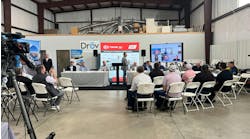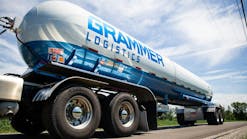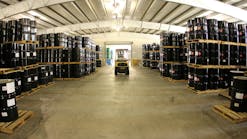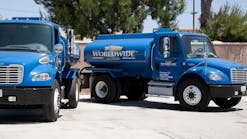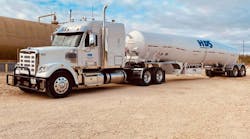Many companies with good intentions use phrases such as “Safety is our top priority” on their website, in their safety policies, and even as decals on their equipment. Unfortunately, these broad statements and ideals open them up to exploitation by plaintiff attorneys.
Recently I was at a trucking conference and had the pleasure of hearing Dr. Bill Kanasky, Jr., from Courtroom Sciences, speak. He outlined how trucking companies using broad statements set the plaintiff up perfectly to use their reptile tactics during deposition and in court.
Reptile tactics
Plaintiff attorneys using reptile tactics have the goal of quickly gaining the upper hand in the litigation process. The reptile tactic is neurocognitive manipulation designed to unwittingly trap a defense witness into admitting malfeasance or negligence. In other words, they will take a company’s mistake, paint a picture that they’re not following their own rules, and that they didn’t mean what was in the policy or on their website.
Phrases such as the following should be avoided:
- “Safety is our top priority”
- “Commitment to safety”
- “We pledge to demonstrate defensive driving practices at all times”
- “Industry leader in safety”
- “We work relentlessly to strengthen our safety culture”
- “Safety without exception is the responsibility of all employees at all levels”
- “Together we can make a difference in the safety of everyone”
Don’t set up your own demise
These statements are a plaintiff attorney’s dream, so it’s best for carriers not to set up their own demise. The depositions and court proceedings will be hard enough on them or another corporate officer. We all know in the trucking business, accidents happen, so companies must always be thinking about litigation. This does not mean sacrificing safety. A strong and robust safety culture is critical; however, values and ideals around safety are best spoken and not put into writing.
Customers will not base their hiring decision on “safety is our top priority” or other similar phrases found on a website. Drivers will not have fewer accidents because a company policy states that “At ABC Trucking, safety is our top priority.” Priorities change with circumstances, and we cannot control everything that happens on the highway. Therefore, there is no sense in raising the legal bar.
“Our insurance advisor, Raymond, invited us to a trucking leadership conference where we learned the realities of the reptilian tactics being trained to plaintiff attorneys around the U.S.,” reported HD5 Transport’s Melissa King. “With this knowledge, we were able to come back to our team and review our websites and policies, as well as help our drivers understand better ways to defend our company against nuclear verdicts.”
Broken defense system
Bulk haulers cannot rely on most insurance companies and their defense attorneys to protect them. The insurance industry is great at telling people how this claim will increase their premium but does a poor job of helping them be proactive in preventing a large settlement or verdict in the first place.
Additionally, many defense attorneys are ill-prepared for the fight against the plaintiff’s bar. The plaintiff’s bar does a great job of sharing information and tactics among themselves; they have retreats where they practice their skills and go through mock trials. They are motivated by results. A defense counsel is paid the same, win or lose.
What this could cost
Relying solely on the defense attorney assigned by an insurance company can be costly. From the start, a plaintiff’s attorney will attempt to get under the skin of a corporate officer during deposition. The goal is to lead them down the path of admitting a lack of corporate responsibility. This most likely leads to the case settling for a lot more than it is worth. If the deposition has given the plaintiff enough confidence to refuse a settlement and take the case to trial, it could lead to an out-of-control verdict. Money paid by insurance is money a carrier will pay back over the next five years in insurance premiums. Other costs could include reputational damage and the risk that a verdict exceeds insurance limits, not to mention the stress and uncertainty it places on executives, their employees, and their families.
“In our experience, trucking and transportation companies that are reactive and not proactive in managing potential litigation risk are the ones that settle for higher dollars amounts and are targets for nuclear verdicts,” Kanasky advised. “Corporate witnesses and fact witnesses that are trained—prior to deposition—by a psychologist with experience in defeating plaintiff reptile attacks can significantly reduce demands and position the company as a deterrent for unreasonable settlements and verdicts.”
The solution
Shorten and streamline safety policies, removing broad or idealistic language.
On a company website, safety language is unnecessary. The material will not look or sound as sexy, but it won’t be used against the operation. Before making any changes, have all policies and website material reviewed by a transportation attorney specializing in litigation cases.
When an inevitable accident happens, it’s best to proactively consult with a litigation expert who offers services such as deposition preparation. We recommend Courtroom Sciences in Irving, Texas. They are experts at thwarting reptile tactics to reduce or eliminate verdicts and settlements and train corporate and fact witnesses across the country.
At Roark & Sutton, our business is reducing insurance costs and protecting the liability of our clients. We have strategies for getting immediate cost reductions, however, we also put effort into curating resources such as this, to help reduce costs over the long term.
Raymond White is a commercial insurance specialist at Roark and Sutton.

